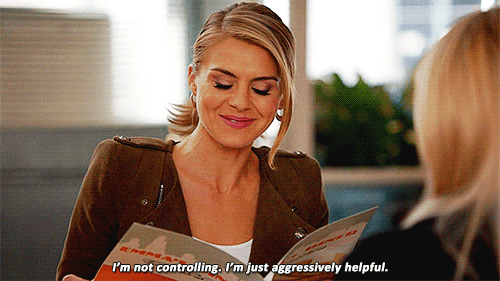You know you need a CP. Or, a critique partner, if you're not into initialisms.
BTW - Sorry, if you're not into initialisms, but this is the internet. So.
You know how to find a good CP. You visited CPSeek.com and you trolled on twitter and you found eleven people to read your MS and six of them actually read it and two of them gave you feedback that was useful and now
YAY YOU HAVE A CP!!!
But wait.
Now YOU have to be the CP.
And that comes with some responsibilities. This isn't a one-sided relationship; you can't just send work out into the void, demanding that others help you improve your craft while offering nothing in return.
You want to be a good CP, you want to give helpful feedback, and you want to build a good relationship with these people.
Here's how you do that. In eight simple steps.
1. Pay attention to what kind of feedback they are looking for. Depending on where they are in the process, some people are looking for big-picture feedback (pacing, character development, story plausibility, etc) or they are looking at the minutiae (grammar, spelling, punctuation, word choice, etc).
If your CP wants big-picture feedback because this is only the second draft, and you spend all your energy nitpicking on the little stuff, you're doing it wrong.
If your CP wants a proofread and you tell her to delete a character, you're doing it wrong.
2. Provide "unwanted" feedback only if it is REALLY important. If you're going to step outside the bounds of what your CP asked for, you better have a reaaaaalllllly good reason for it. Like, they better have a plot hole a train could drive through for you to make that suggestion.
3. Be honest. Feedback is useless if it doesn't address the real issues at hand. Yes. It might hurt their feelings. Yes. It might be brutal. But you absolutely need to tell them. If this "unique fantasy setting" is full of tall graceful elves and surly dwarves and warmongering orcs... you need to help your CP out.
The purpose of critique is to get better. Not to wallow in a cloud of self-congratulatory stink.
4. Be kind. Just because you're being honest doesn't mean you need to be cruel. Point out all the things that need fixing, yes, absolutely. But then point out all the things that are working, too. Even if it's something small, point it out. Those little things might make all the difference to a writer's fragile ego.
Also, saying things in a nice way helps a lot. Compare:
"This is stupid."
versus
"This doesn't feel believable to me."
Both phrases point out a logical fallacy in the story, but the second one is specific and not accusatory towards the writer's intelligence. We all make mistakes. No need to be mean about it.
5. Be as specific as possible. Sending back a MS with whole lot of "this is good" and "this is bad" doesn't help anything. But commenting on WHY something is good or bad or funny or confusing is incredibly helpful.
Use Track Changes, Comments, and even highlighting to address specific issues and really talk about why something does or does not work for you. Compare:
"Your voice is weak."
versus
"In these 136 instances, you used passive voice or -ing verbs that weakened your action and emotions."
Which one is more helpful? Which one would YOU be able to implement more easily if you were the writer?
6. Be willing to brainstorm. Offer ideas on how to tackle a specific problem, but treat it like you're throwing spaghetti at the wall, just watching to see what will stick. Offer up several, if not dozens, of ideas on how to address an issue. Offer up serious suggestions and absurd suggestions and boring suggestions and cliched suggestions - your job here is to just get the wheels turning.
7. Let it go. It's not your work. After you've made suggestions and after you've helped to brainstorm, it is not your job to convince the writer to use your ideas.
Let me repeat that:
It. Is. Not. Your. Job. to convince the writer to use your ideas.
Yes. They might make the wrong decisions. It doesn't matter. It's not your work, it's not your name on the cover, and it's not up to you. Let it go.
8. Provide emotional support. Writing is hard. Writing is also full of rejection and rejection is hard. We can't realistically whine about it all over the internet, and we all need someone we can lean on emotionally. Someone who gets it. When your CP gets a rejection, it's your job to bolster her up. Provide encouragement, remind them of what they do well, and point them in the direction of their next effort. ("That sucks that this agent rejected you. But your novel is so cute and romantic, people will love it. Query that other agent instead.")
What else do you think is your job as a critique partner?







I love and agree with all of these. I think another to add is humility. We all have a certain hubris as writers, so we assume that our critiques are right...when they just honestly may not be. So if we approach from a humble place while doing the rest of these fantastic tips, our feedback will be even better, I think.
ReplyDeleteI have the best CPs in the WORLD. And I try really hard to live up to them. These are awesome tips for someone starting out though! I WISH I'd known this stuff at the beginning. There were so many MSs I gave nitpicky critiques on, when I know they were looking for overall issues.
ReplyDeleteI know now.
:)
So, so, so true! You are 100% right. Knowing that we don't have all the answers and the advice we give might not be right is super important. Good point :)
ReplyDelete*sigh* Me too.
ReplyDeleteI am positive that I broke, like, EVERY one of these rules the first... I don't know.. twenty times I read for somebody. It took a lot of time for me to realize those emails? The ones saying what they needed help with? Yeah. Those are important.
Which is why I'm putting this up here. Because Past Gina needed the lesson.
Great tips! One thing that I used to do, that I have had people do, and that I finally STOPPED doing (at least I hope I did) is fixing wording to put it in your voice. I would look at something and think, "Oh, but this part would sound so much better THIS way," when it was actually perfectly fine the way the writer had it originally. Now I try to avoid it unless there is something I feel is seriously awkward.
ReplyDeleteThanks for the advice to continue to be supportive- I don't really have a regular critique partner yet, so that's something I'll try to remember. :-)
Yes! This!
ReplyDeleteI had one person mark up my pages, rewording everything. I've found that, to avoid this pitfall, I just highlight a phrase and say WHY I would change it. "Lots of repetitive words" or "awkward phrasing" or "dangling modifier" or whatever. I try not to rewrite (I probably fail and still do rewrite sometimes without realizing it), but this trick helps a lot.